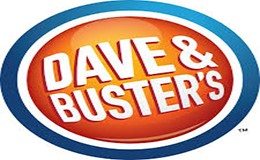| Raising effective cheaters 2012-11-26 Author: Clay Nichols |
Recently I’ve heard lots of parents expressing concerns about the prevalence of cheating in our society. These moms and dads point to elite sports and even the most prestigious institutions of higher learning and worry that cheating has become the norm.
Well, duh. What a bunch of suckers.
Parents that live in the real world are so over honesty. We know that our kids are unlikely to get ahead if they are encumbered with notions of fair play, mindless rule-following and namby pamby truth-telling.
For those of you still admiring worn out role models like George Washington, Abraham Lincoln or Greg LeMond, I have a couple of pointers for raising effective cheaters.
1. Model effective cheating
Any effective cheating curriculum will begin at home. Kids naturally look first to parents for their ideas of right and wrong. The problem with most adult cheating, on taxes or fantasy football for example, is that it generally takes place outside the awareness of the children. Get your cheating out in the open where the kids can observe it. Cut in lines, disregard traffic rules and use your phone whenever the heck you feel like it. In general, it’s important to establish that rules, or even courtesies for that matter, are for other, less important people.
2. Undermine authority
Most younger children will naturally respect elders and authority figures. This can be easily remedied. Complain loudly and frequently about the performance of teachers, coaches and administrators in front of the kids. Scream at refs whenever possible, even young ones. If a teacher gives your child a bad grade, dismiss his or her professional expertise, challenge the grade and give the child a day off from school to compensate. It’s important for kids to know that rules are arbitrary, enforced whimsically and usually dreamed up by losers unable to compete in their absence.
3. Emphasize ends over means
Kids come to us believing that all they need-is a little love, and that a cardboard box is a fantastic toy. Whip out the MasterCard and these notions will be vaporized by sundown. Overwhelm kids with stuff. Cool stuff. Electronic stuff. More stuff than they’ll ever use or even want. Then do the same thing for yourself (see “model effective cheating” above). Then let the stuff speak for itself. Avoid conversations about career and life choices. This allows kids to make a direct connection between success and material goods without getting bogged down with ideas like process, values or meaning.
In the end, good parents all want the best for their children. And that means beating your children to it. By demanding honesty, wouldn’t we be cheating them of that?
Clay Nichols is one of the founders of DadLabs.com and co-author of “DadLabs Guide to Fatherhood: Pregnancy and Year One.” He lives in Austin with his wife Kim and three children.












